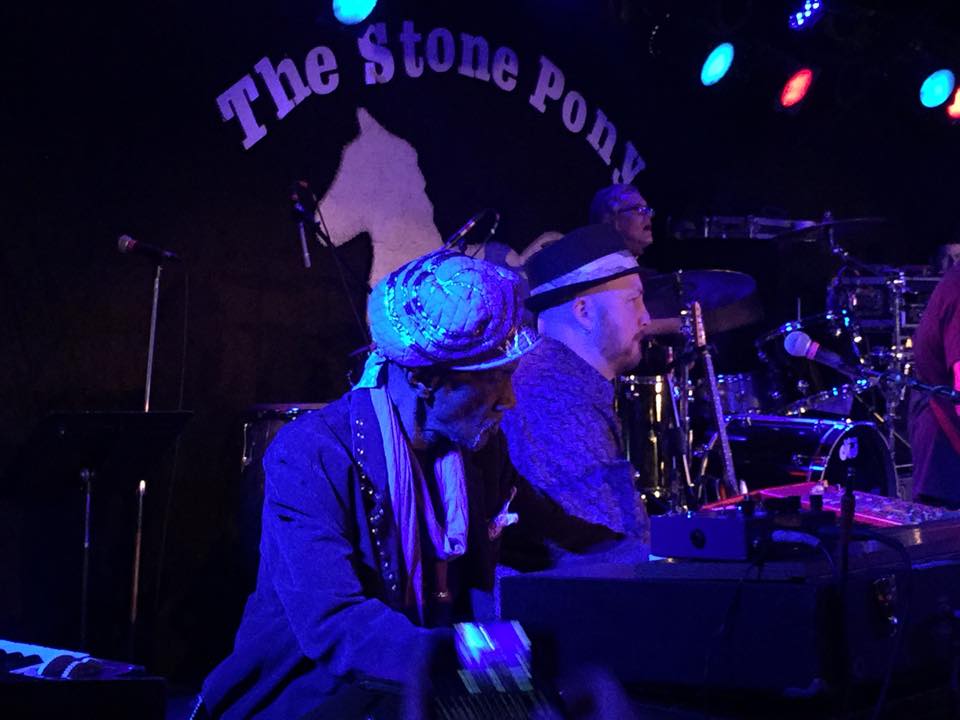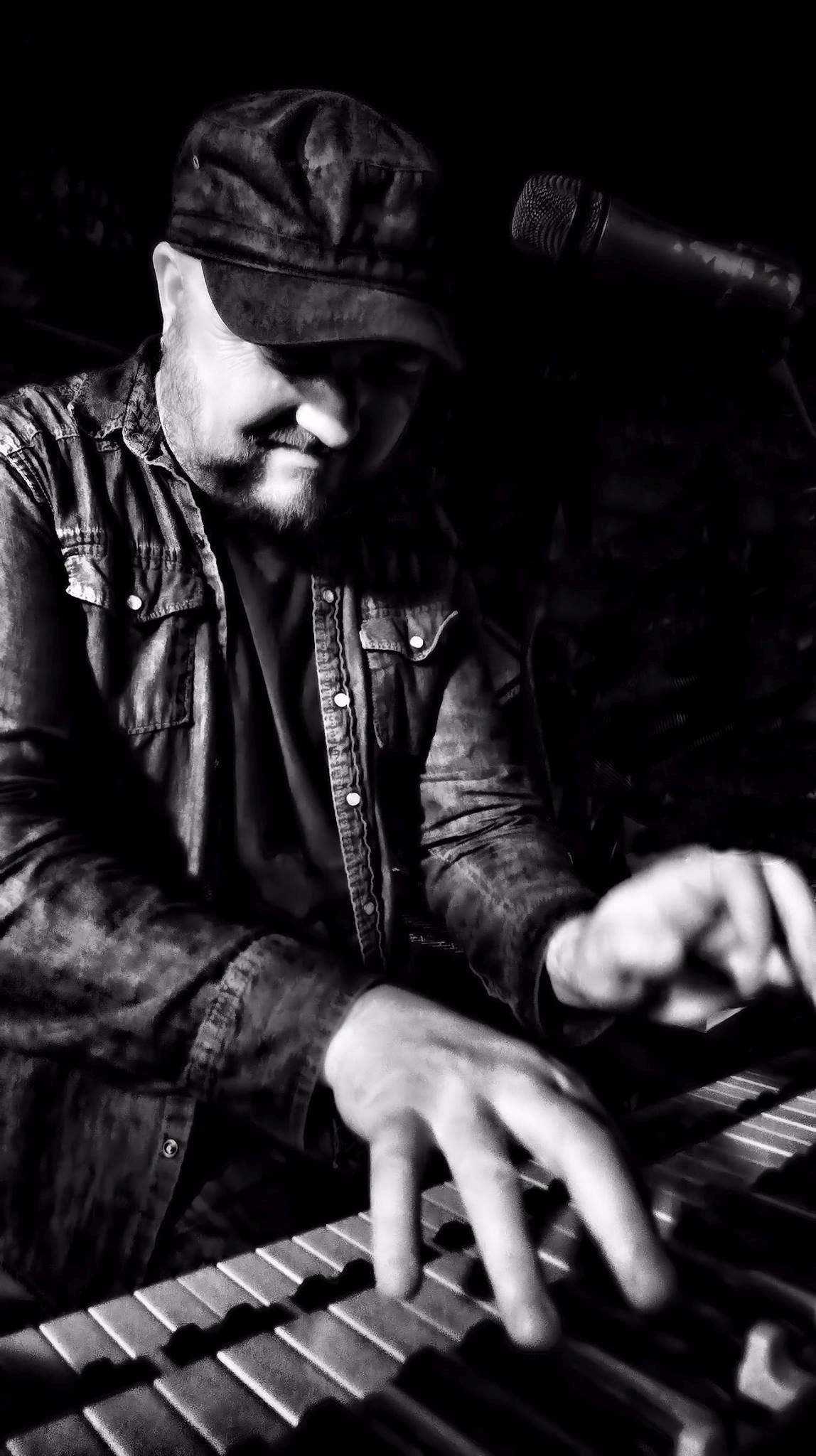We’re excited to introduce you to the always interesting and insightful Arne Wendt. We hope you’ll enjoy our conversation with Arne below.
Hi Arne, thanks for joining us today. Are you able to earn a full-time living from your creative work? If so, can you walk us through your journey and how you made it happen?
I am the youngest of six kids from a musical family. As such, I picked it up from an early age. I played trumpet through my senior year of high school, played in concert band, jazz band and orchestra, took all the music theory classes I could sign up for, including summer programs. I knew I wanted to be a musician. I put myself through two years at the local community college where I continued to take music courses and played in a couple of original rock bands. One went on to get a management contract and then a publishing deal, which was a kind of rare thing and usually meant in those days that a major record deal was imminent. So with the money we got for signing the publishing deal, we all moved in together to work on our album. Meanwhile, I worked part-time jobs to my bills and keep my jalopy on the road. The major record deal never came, and some years down the road the band broke up.
I kept working and ended up with a full-time salaried day job. I also decided to spread my wings and gig with as many bands/projects/friends as I could. I lived as inexpensively within my means with no outside help, kept working and saving my money and slowly became a mercenary musician. I still had projects with friends that made no money, but I was gigging with other bands, getting called for studio dates. I also was singing backgrounds with these bands and started learning to sing lead. That is very important! You have to learn to sing as it will get you so much more work than just being an instrumentalist.
Somewhere down the line I just felt that my day job was turning me into an empty husk of a person, and I took the plunge into full-time work. This was not done in blind faith: I had saved up enough money to tide me over and I knew I could find work if I needed to, whether it be giving private music lessons (something I never really took to), or finding some other work. I had a lot of connections in the music world, but it was a very slow start and I made very little money the first few years. But I kept at it, had a couple lucky windfalls and made some great connections. I got some work as a contributing writer for Keyboard Magazine and another smaller publication. I was hired to program synthesizers for some well-known local musicians. My work with my dear-departed friend Bernie Worrell and Moog Music got me hanging back-stage at the first MoogFest in 2004 where I got to hang out with a lot of keyboard heroes including Rick Wakeman and Keith Emerson!
In 2008 also joined a charity organization called Holiday Express based in Monmouth County NJ that played music for the less-fortunate during the holiday season. Here I met a lot of wonderful people who have become like family to me. One of them played with Bon Jovi and introduced me and other musicians to Jon Bon Jovi when he was looking for musicians for a side project. That was the biggest boost to my ability to do this work full-time. I worked with Jon for 9 years, basically until Covid put a stop to everything. Meanwhile, I was involved with any number of other projects like my Motown tribute, Motor City Revue, of which I’m a founding member of over 16 years. This band now plays regularly around the tri-state area and further. I am also now the Gregg Allman in a tribute called Statesboro that the Big House in Macon (Allman brother museum) calls their favorite tribute. I play regularly with a bunch of popular bands in the NJ area and still do plenty of studio work. Over the years I worked with Max Weinberg, Gene Cornish (from The Young Rascals), played on Darlene Love’s last record (produced by Steven Van Zandt).
It’s a crazy amount of music I have to keep in my head, and all of the programming I do on my synthesizers for it, but I wouldn’t have it any other way!
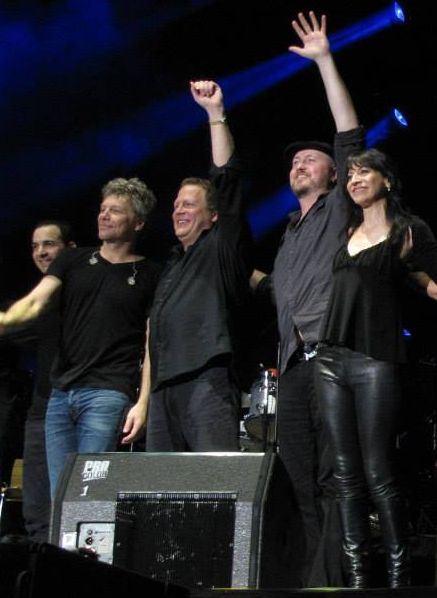
Great, appreciate you sharing that with us. Before we ask you to share more of your insights, can you take a moment to introduce yourself and how you got to where you are today to our readers.
Well, I think I did that by accident in the last entry, but I’ll see if I can expand on it.
Ever since I was a young kid, I was interested in synthesizers. This is very much due to my older siblings and their musical tastes. One of my older brothers was always tinker with electronic projects in our basement, building bread-board oscillators with a little tweeter and a potentiometer, powered by a 9-volt battery hanging off the breadboard. Man, I loved playing around with that thing! He was a big progressive rock fan, and these were the salad-days of FM radio and album-oriented rock music, so there was plenty of synthesizers to be heard. What really knocked me out was the first time I heard “Lucky Man” by Emerson, Lake & Palmer. I couldn’t believe the sound of the Moog Synthesizer, and it just stuck with me. Genesis, Yes, Gentle Giant, and non-prog rock artists like Stevie Wonder, Steely Dan, etc etc, it all just drew me in. Another brother was a bassist, and yet another was a trombonist (they both are still very active but not full-time like me), so I was into all sorts of music and all of the instrument sounds. I played trumpet for years, so horn bands like Chicago and BS&T were very important to me as well.
I got my first real synthesizer saving up my paper-route money (remember those?). It was a used Yamaha DX-27, and I learned how to programs synthesizers starting with that. FM synthesis is a strange place to start – not very user-friendly. This was the late-80s, and with the dawn of digital synthesis, a lot of people were practically throwing out their old, uncool analog synthesizers, so I managed to get a Micromoog for $25 and Korg Polysix for $75. A friend and I scored a Hammond C-3 and a Leslie speaker for $400! I was off to the races! I learned how to make/sculpt sound with all of these things, and I had a knack for it. There were better players out there than myself, but I was carving out a niche all the same.
Down the line when I was learning to sing, it turns out I have a very strong baritone with a very strong falsetto. I’ve been told I sound a lot like Steve Winwood, and I can do very close approximations of Donald Fagen, Rich Manuel and Rick Danko from the Band, even David Lee Roth, funnily enough. So that also made me more desirable as a gun-for-hire.
I feel incredibly lucky to be who I am, do what I do, and I know that I just have to keep chipping away at all of it. The more you are known for doing good work, the more you have to work at keeping that reputation up!
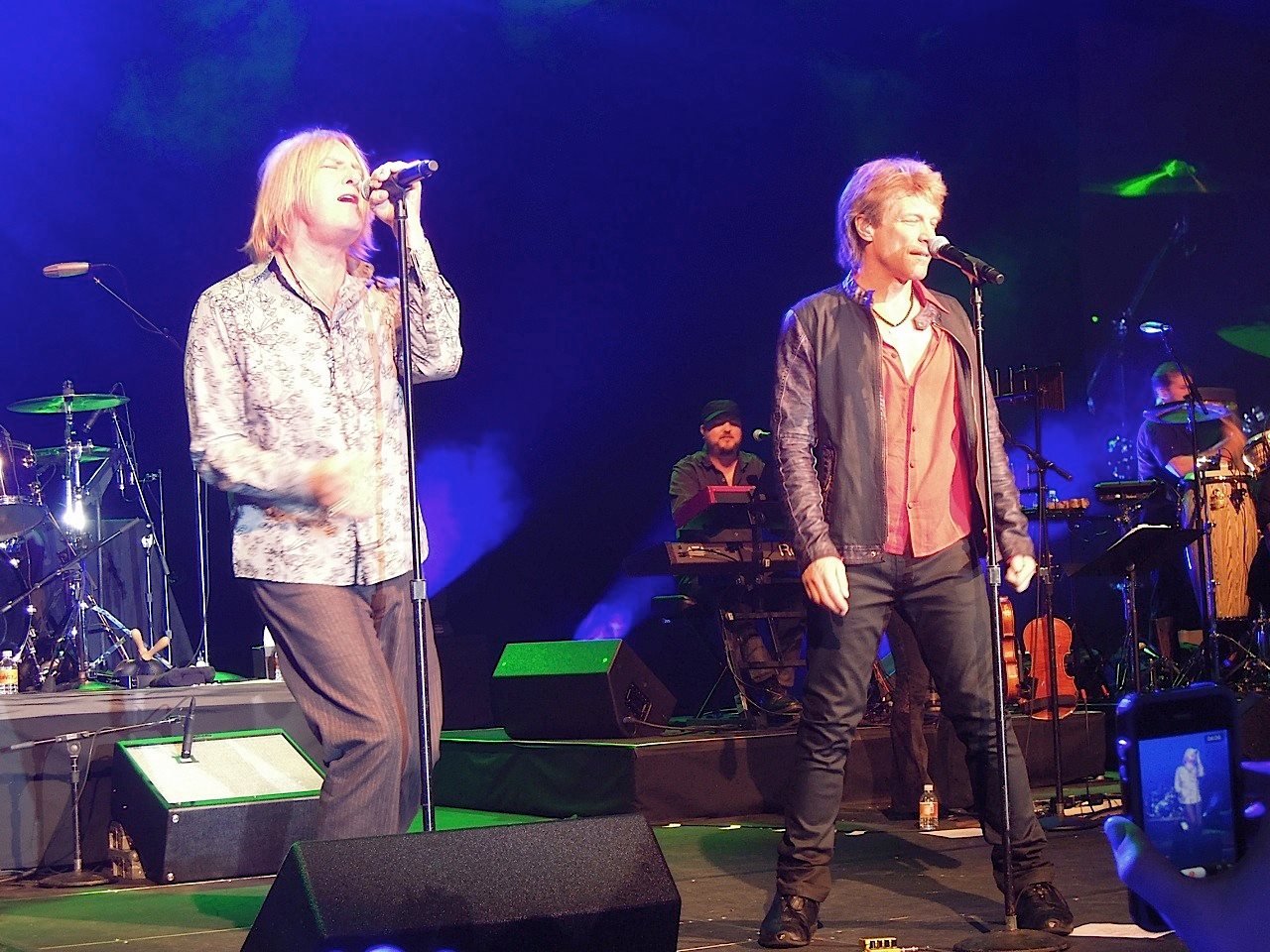
What do you find most rewarding about being a creative?
I can only speak for myself, but I feel like I am lucky to know what my calling is in this lifetime. Music has been there for me as long as I can remember, and all of the good things that have come to me in life (besides being born into a great family) have come through the gift of music.
I feel it’s my duty to myself and perhaps to life in general that I follow this thread and serve it humbly. I was never meant to push paper at a desk. I’m not sure anyone is, but some people seem to excel at that and reap the benefits of a corporate lifestyle. Some people build roads, some people keep our plumbing working. They all deserve their kudos for keeping society going, and I recognize that. Knowing where I fit in in all of this took me years to figure out, but it was right in front of me the whole time. With age comes wisdom.
The arts are every bit as important to humanity as everything else that keeps a society healthy and thriving. It’s proven to me every day when I’m out there playing and seeing the smiles on peoples faces as they forget about their problems be it with their profession, their love lifes, their familial obligations. It’s a symbiotic relationship, and I’m thankful for it.
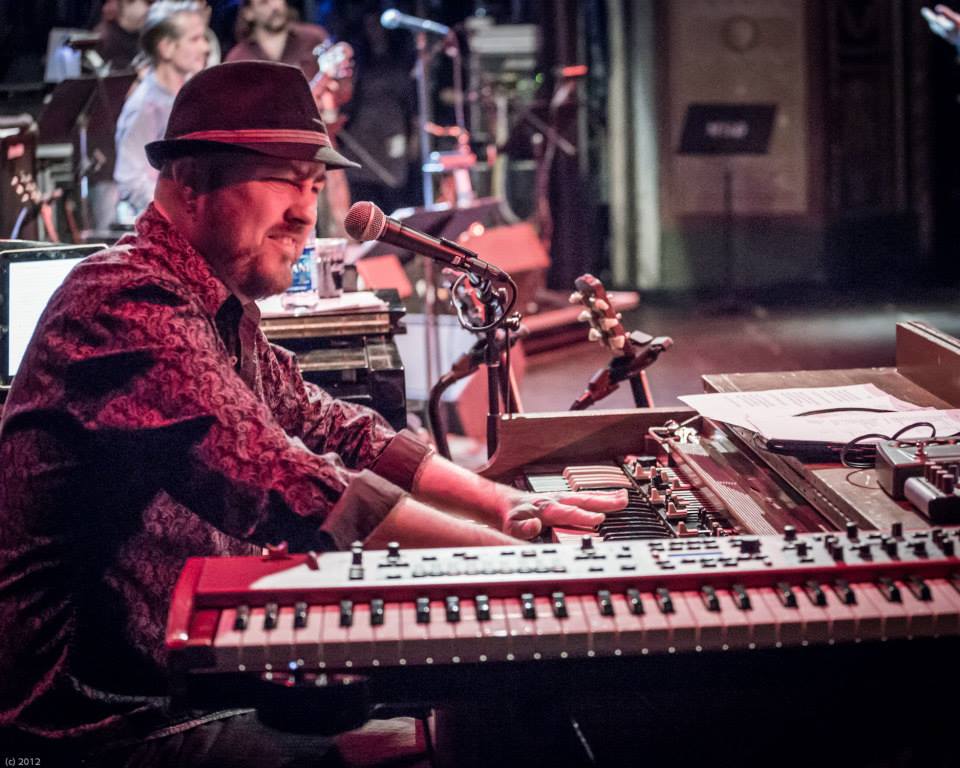
Any insights you can share with us about how you built up your social media presence?
I don’t have a huge social media presence, and that has come to bite me in the rear at times. I tried to get artist endorsement from a company whose products I’m well-known for using, and while at first they weren’t interested at all in working with me, after a few years playing with JBJ they were champing at the bit. The president of their artist-repertoire contractor called me himself to get the ball rolling. He asked me if I had a Facebook profile, I told him “yes”. He then asked me if I had an artist page on FB, at the time I didn’t and answered “no”. Instagram? “No.” Twitter? “No.” He pretty much all but hung up on me after that!
Social media can be a wonderful tool to promote your music, your art. Lord knows, I remember back in the day before Facebook or even MySpace, we went to Kinkos to print out flyers. I remember mailing lists and licking stamps to send out postcards with tour dates. Daisy-wheel printers with labels. Don’t miss it! Now we can let anyone with any curiosity know where we can be seen gigging with ease. People take video, share pictures, post them on our walls. We share them. I never once asked Jon Bon Jovi for a picture of just us two as I though anyone can do that – it was better to been seen with him from the stage.
My approach to social media is not the “Look at me, important!” approach that is touted or recommended to get clicks or to garn influence. I believe it is a tool that should be used with cautiousness, especially in these times. One should present themselves with their art honestly and humbly. In an era of influencers and people being famous for being famous, there’s less and less depth. But I believe that the pendulum will eventually correct the vapidness as people are going to get bored with it. So my advice is to get “ahead” of the problem and simply be yourself. Don’t overstate your case, just play your music and be sincere.
Contact Info:
- Facebook: https://www.facebook.com/profile.php?id=100034784126377
- Other: https://www.motorcityrevue.com/
https://www.facebook.com/StatesboroAllmanBrothersTribute
